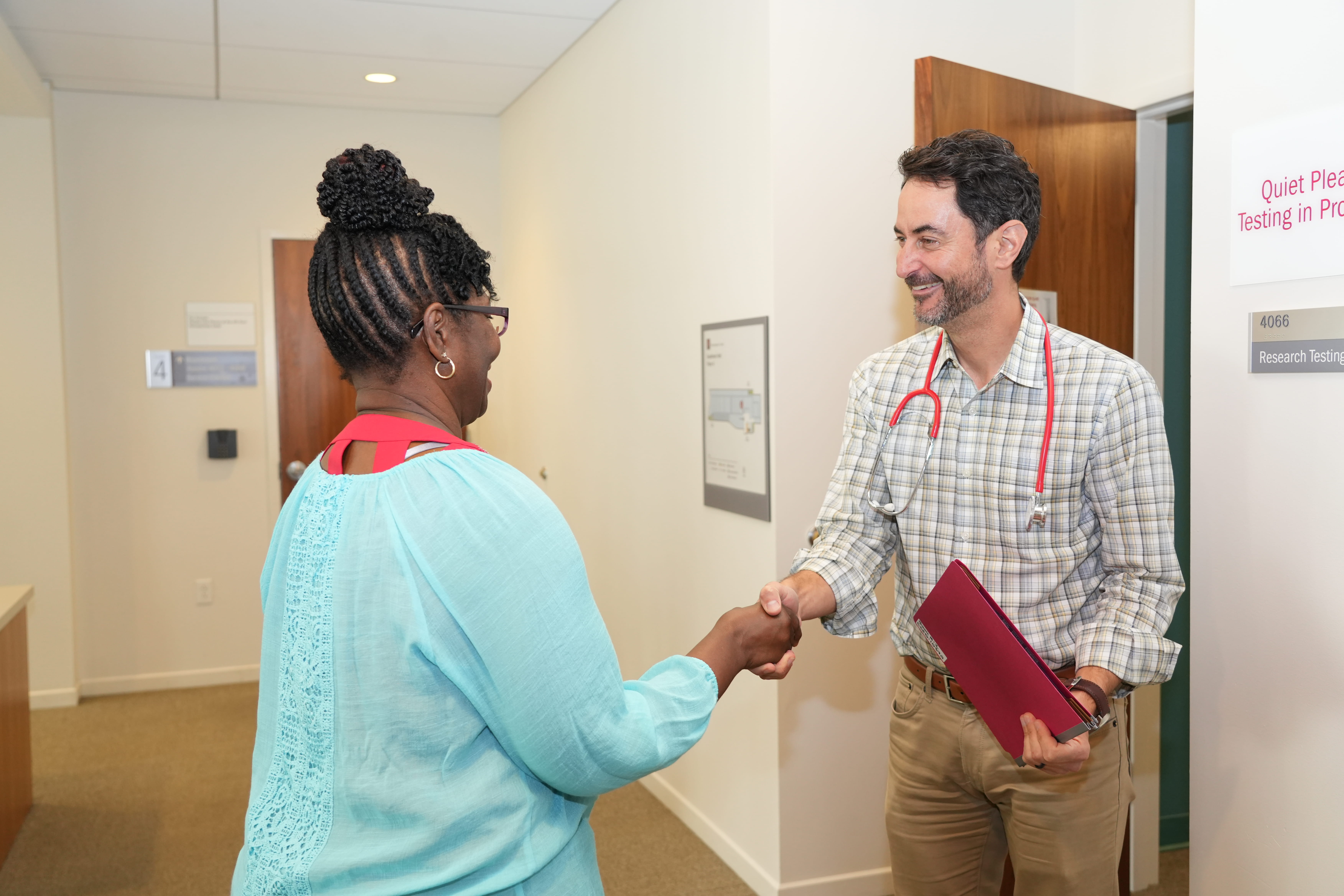Researchers in clinical and translational science at Indiana University School of Medicine test new methods to diagnose, treat and prevent Alzheimer’s disease. Much of this clinical research is led by investigators at the Indiana Alzheimer's Disease Research Center and in the Department of Neurology, who work to translate research advances into improved diagnosis and care for people with Alzheimer’s disease.
One of the largest studies on Alzheimer’s disease in people under 65 years of age, the Longitudinal Early-Onset Alzheimer’s Disease Study (LEADS), is underway at IU School of Medicine to develop clinical and biomarker measures for future clinical and research use for this devastating disease.
Through the Center for Neuroimaging, researchers use advanced brain imaging techniques to detect Alzheimer’s disease before a patient begins to show symptoms. Imaging also helps assess whether potential drugs work by measuring if they clear plaques and tangles or if they slow atrophy or loss of brain volume.
Together, advanced imaging, biomarkers from blood or cerebrospinal fluid, genomics and cognitive testing provide the foundation for an emerging precision medicine of Alzheimer’s disease and related dementias.










